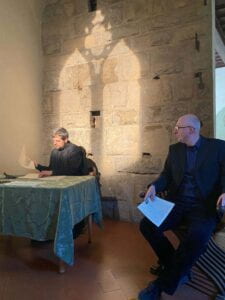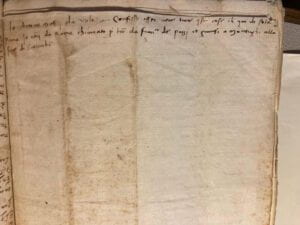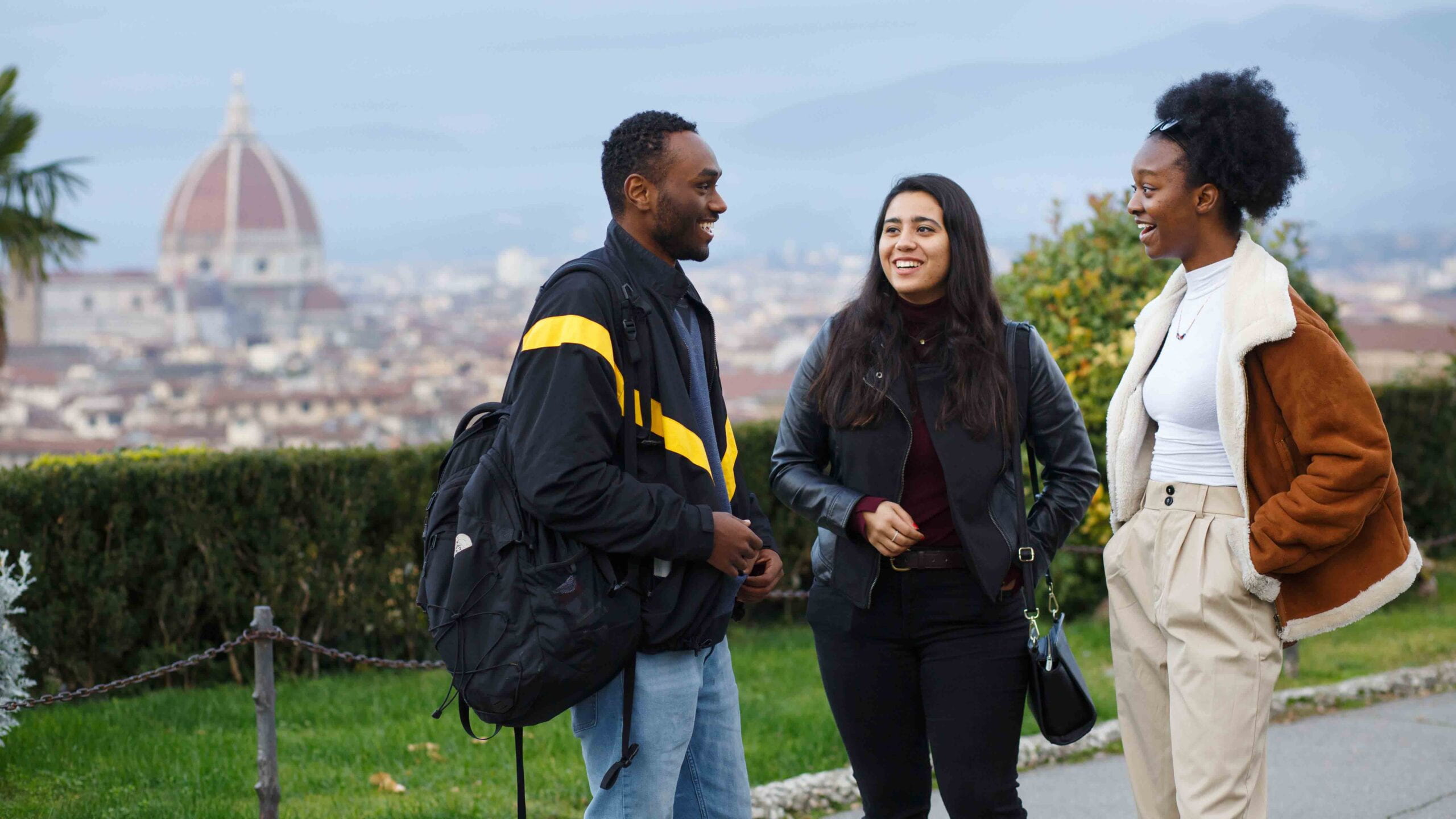
Luca Campigotto, left, and Alessandra Capodacqua, right, in conversation at the “Silence and Sound: Visual Echoes in Two Cities,” event
Last fall at NYU Florence, Luca Campigotto, a photographer known for his evocative images of urban landscapes, shared his photographic journey and artistic vision in a conversation with faculty member Alessandra Capodacqua. Students studying away in Florence filled the audience to listen and learn from the insightful discussion titled “Silence and Sound: Visual Echoes in Two Cities.”
Each semester students at NYU Florence are able to participate in a diverse array of events including talks by celebrated artists, scholars, musicians, and actors. Villa La Pietra, the historic villa home to NYU Florence’s campus, hosts countless conversations every semester that span disciplines and global perspectives.
Capodacqua, a photographer, educator, and exhibition curator who has taught at NYU Florence for 25 years, regularly organizes lectures with acclaimed photographers for her students to attend. Past campus talks have featured Abelardo Morell, Peter Bialobrzeski, Monika Bulaj, Martin Kollár, and Martina Bacigalupo, and many others. During the fall semester, Capodacqua curated a conference tailored to students enrolled in her course City Photography and Architecture. “The class explores the representation and analysis of urban environments,” she says. “I chose to feature the work of Luca Campigotto, who has spent decades examining the parallels between seemingly dissimilar cities united by water, such as Venice and New York.”
A landscape photographer and writer living in Milan and New York, Campigotto has exhibited his work at numerous museums and institutions worldwide. Early in his career, his photography was shaped by an attraction to wastelands and abandoned places, in contrast to the refined beauty of his hometown of Venice. Later, a project dedicated to photographing Venice at night in black and white reinvented Campigotto’s approach, inspiring him to photograph the city from a historical perspective.




Images from Campigotto's 2006 book, Venice Exposed
After moving to New York City in 1999, Campigotto found a new muse in the bustling atmosphere of the metropolis. Despite initially feeling like an outsider, he managed to bridge the gap between the two distinct urban landscapes of Venice and New York. “His images reflect his quest to capture the essence of New York City’s urban fabric and evoke the atmosphere of iconic films set there,” says Capodacqua. “These two cities—though worlds apart—share similarities in their enduring historical identities and architectural evolutions.”


Images from Campigotto's 2012 book Gotham City
“I have spent lots of time photographing these two cities,” Campigotto wrote in his 2018 book, Disoriente. “I have watched both with greedy and devoted eyes, trying to capture their irreducible visual essence, the moment when their physical appearance coincides with the inner imaginary side.”
In conversation at NYU Florence, Capodacqua and Campigotto discussed how his experience growing up in Venice shaped his vision of New York City and how both cities have transformed with time. “We discussed how his photographs capture the layered histories and evolution of these two iconic urban landscapes, drawing parallels between their historical depth and identifying common threads in their development,” says Capodacqua. They also covered the more technical aspects of Campigotto’s work, including his preference for night photography and his emphasis on post-production.
Students at NYU Florence flocked to this special event. “There was an outstanding participation of students, not only from the photography classes but also from other courses,” says Capodacqua.
This talk was one of dozens of events at NYU Florence last fall. Each semester the NYU Florence newsletter advertises between 10 and 12 events weekly. While conversations with prominent artists and scholars are regular occurrences, students can also attend community engagement outings, career mentoring sessions, field trips, and workshops on everything from art restoration to pasta making. Notable fall semester events included the olive harvest at Villa La Pietra, a field trip to the coastal region of Cinque Terre, a symposium on the 2024 US election and its implications for Italy, theatrical performances, and many more.
The students in attendance at Campigotto’s talk at NYU Florence, most of whom were studying away from NYU’s New York City campus, were well-equipped to reflect on the photographer’s loving descriptions of New York City and his reflective comparisons of the US and Italy. “I have had the privilege of growing up surrounded by the beauty and history of Venice,” wrote Campigotto in Disoriente. “But I always felt New York to be my real ‘place in the world.’”
Written by Olivia Richter


